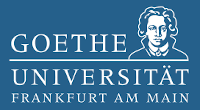Брачно-семейные отношения в рябиновском согласии в первой половине XIX в.
DOI:
https://doi.org/10.31168/2658-3356.2020.5Keywords:
Riabinovtsy, Riabinovo denomination, Old believers, old believers’ marriage, the Kazan diocese, Kazan Spiritual ConsistoryAbstract
Ryabinov’s denomination in historiography is a poorly studied Old Believers’ movement. It was spread in Kazan, Orenburg and Perm provinces of the Russian Empire. The only full-fledged article dedicated to their ritual life was written in the 19th century by professor of the Kazan Theological Academy N.I. Ivanovsky. Archival investigative cases about the Ryabinovites testify to their variety of religious life in the 1830s and 1850s. During the reign of Nicholas I, the authorities sought to strengthen disciplinary control over the Orthodox parish and to identify the “formal” Orthodox, who actually belonged to other religious communities. These measures would lead to a crisis in the relationship between the secular and spiritual authorities and Old Believers’ communities and to the heyday of investigative cases related to the apostasy of Orthodox parishioners split. Under these conditions, there is a confessionalization of the Old Believers’ denomination among the Rabinovites, aimed at separating their own community from the rest of the Orthodox parishioners and representatives of other Old Believers’ consent. Before the reign of Nicholas I, the Ryabinovites, like a number of other representatives of Old Believers’ denominations, were baptized and married in Orthodox parish churches. Thus, the authorities regarded them as “official” Orthodox. In the process of investigation, the ceremonial life of the Ryabinovites, in particular baptism and marriage, began to change dramatically. The work will show how Ryabinovites, abandoning any contact with the Orthodox Church, began to more actively perform their own rites of baptism and marriage.












